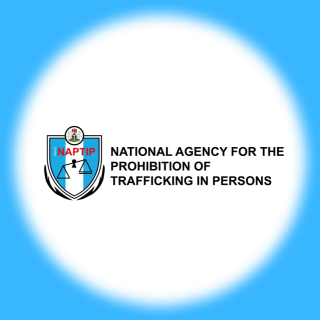By Adeyemi Adekunle
Abuja, Nigeria- To address the rising tide of gender-based violence in the nation’s capital, the National Agency for the Prohibition of Trafficking in Persons (NAPTIP) is advocating for the establishment of a specialized command in the Federal Capital Territory (FCT). This initiative was announced by the agency’s Director-General, Binta-Adamu Bello, during a pivotal meeting marking the commencement of the 2024 Global 16 Days of Activism Against Gender-Based Violence.
The stakeholder’s coordination meeting, held on Monday in Abuja and supported by the Ford Foundation, aimed to assess the implementation of the Violence Against Persons Prohibition (VAPP) Act of 2015, which is pivotal in combating various forms of violence in Nigeria. As the world observes this annual campaign that highlights violence against women and girls, the proposed command seeks to enhance the response to Sexual and Gender-Based Violence (SGBV) through improved coordination and support mechanisms.
“The establishment of the FCT command will further solidify our commitment to eradicating this social menace,” declared Bello. “We anticipate that it will enable quicker responses to SGBV cases, enhance the provision of specialized services for survivors, and strengthen investigations and prosecutions within the region.”
Bello further outlined that the command could serve as a model for other states, fostering collaborative efforts to eliminate SGBV throughout the country. She emphasized the necessity for input and expertise from stakeholders to facilitate this ambitious move.
“It is gratifying to note that this meeting coincides with the first day of the Global 16 Days of Activism,” she added, pointing to this year’s theme: “Towards Beijing +30: Unite to End Violence Against Women and Girls.” This theme resonates with the ongoing assessment of the Beijing Declaration and its platform for action, marking a pivotal moment in the pursuit of gender equality and the empowerment of women.
The meeting drew a diverse group of stakeholders, including government officials, civil society organizations, and advocacy groups, all focused on finding a unified response to the escalating violence against women and girls. Discussions revolved around the pressing challenges faced in executing the VAPP Act, which, while a monumental step towards safeguarding vulnerable individuals, has often encountered implementation barriers.
Many advocates voiced that although the VAPP Act has been in place for several years, significant gaps remain regarding its enforcement. “[We need] a thorough evaluation of the current implementation framework,” stated [Name], a leading women’s rights advocate at the meeting. “We must assess not only the level of intervention efforts but also their effectiveness.” This approach aims to identify flaws within the system and strategize on enhancing responses to ensure justice is served.
A recurrent theme during the discussions was the severe underreporting of SGBV cases due to public ignorance concerning the rights afforded by the VAPP Act. Participants highlighted that many victims remain unaware of their entitlements under the law, perpetuating a cycle of violence and exclusion. The gathering underscored the critical need for widespread awareness campaigns to educate the public about the protections in place.
Furthermore, law enforcement training emerged as a crucial topic of concern. Attendees acknowledged a pressing need for comprehensive training programs for police personnel to sensitively handle cases involving gender-based violence and to implement the provisions of the VAPP Act effectively. “[It’s not just about having the law; it’s about understanding how to apply it sensitively and effectively,” admitted [Name], a police representative, affirming the call for enhanced training.
The coordination meeting not only served as a platform to review existing challenges but also as an opportunity for stakeholders to share best practices and successful intervention strategies. Tolulola Odugbesan, acting Director of NAPTIP’s VAP Department, emphasized that the gathering allowed participants to connect, reflect on cumulative efforts, and propose far-reaching recommendations for the effective implementation of the VAPP Act.
“With renewed vision and collective determination, I have no doubt that we can tackle the issues associated with violence against persons, making Nigeria a safer, more habitable nation for all,” concluded Bello, instilling hope among participants for a more joint and impactful approach against violence.
As the Global 16 Days of Activism unfolds, the establishment of a dedicated FCT command remains a beacon of hope for victims of gender-based violence, signaling a united front in the fight for justice and the protection of human rights. The resolve of stakeholders to collaborate and enhance existing structures could lead to transformative change, reflecting a collective effort to end violence against women and girls in Nigeria.




